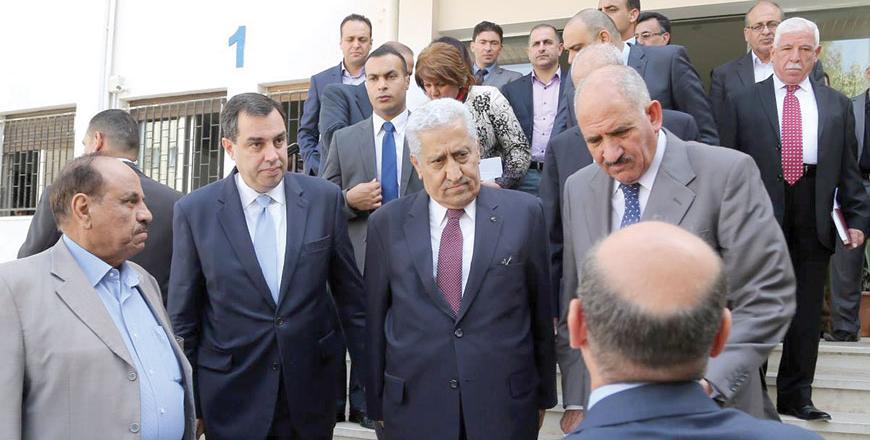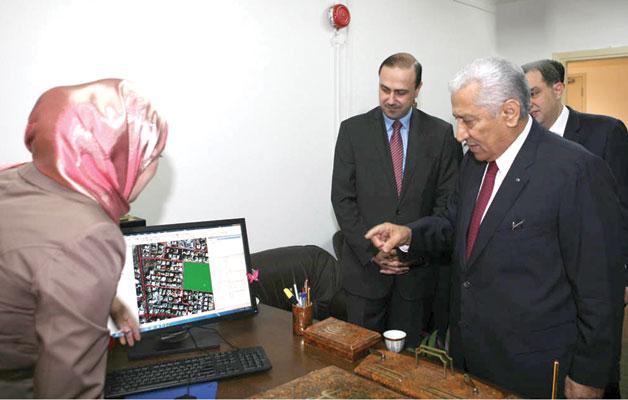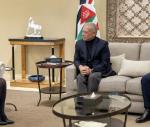You are here
No politics behind 2015 census — PM
By JT - Oct 04,2015 - Last updated at Oct 04,2015

Prime Minister Abdullah Ensour speaks to ministers and officials outside the headquarters of the Department of Statistics after he chaired the higher ministerial committee of the 2015 census (Photo courtesy of Planning Ministry)
AMMAN — The government will hold the first national census in November following a 10-year gap, a period during which the population of Jordan is expected to have doubled.
With the participation of over 25,000 employees, the 2015 national population and housing census is expected to cost the Department of Statistics (DoS) well under JD14 million, compared to JD18.5 million in 2004, according to the DoS website.
The 10-day count is critical for the Kingdom’s fact-based approach to infrastructure and facilities development, including schools, hospitals and water resources, Prime Minister Abdullah Ensour said.
Even though the country has been reeling from the impact of hosting 1.4 million Syrians, the premier stressed that the census does not have political aims and is not related to any nationals residing in the country, be they Syrians, Egyptians, Iraqis or of other nationalities.
Chairing a DoS meeting for the higher ministerial committee of the 2015 census, Ensour said the count will include all residents of the Kingdom, the Jordan News Agency, Petra, reported.
The timing of the census was set to ensure that regular residents of the Kingdom are inside the country, Ensour said, as the government was trying to avoid summer and Hajj seasons.
He insisted that the information in the census will be classified and only for statistical use, stating that citizens will incur no risks and the census will only include numbers, not names.
Ensour said the census is important as Jordan’s 2025 vision was based on inaccurate figures, causing application difficulties. The final results of the census, which will be announced in February 2016, are expected to provide the accurate numbers needed for the country’s development.
Field workers will use tablets and will be offered all the necessary training to carry out the census, Petra reported.
According to the 2012 amendments to the 1950 General Statistics Law, a population and housing census is to be conducted every 10 years, with the last census being carried out in 2004.
It then put the Kingdom’s population at 5.1 million. Current DoS estimates put the Kingdom’s population at 10 million, including refugees and guest labourers.
Planning Minister Imad Fakhoury said DoS has finished the first phase of dividing the Kingdom’s governorates into blocks, and has so far finished 25 per cent of the second phase, expected to conclude by the end of October.
DoS Director General Qasim Zu’bi said the census will provide additional data related to migration, unemployment, disabilities and data on non-Jordanians who voluntarily entered the Kingdom or came as refugees. It will also provide modern statistical frameworks in the fields of population, economy and agriculture.
Related Articles
AMMAN — The 2015 Population Census, which started on November 30, ended on Monday in all governorates, the Jordan News Agency, Petra, quoted
AMMAN — The government on Thursday urged all embassies in the Kingdom to call on their nationals who reside in Jordan to cooperate with rese
AMMAN — The information the public will provide for the 2015 population census will not entail any obligations on their part, Prime Minister
















